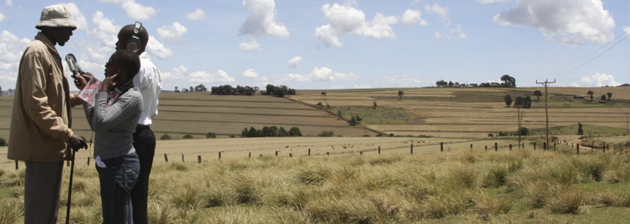“As a journalist, you have to make a choice. You cannot report on land as touch and go. It is usually a process. The issues you will deal with will affect the people’s social, economical and political life” says Ibrahim Mwathane, a land expert working with the Land Development and Democratic Institute (LGDI). Mwathane was addressing a training workshop titled “Tracking Land Reforms” at the Internews offices on April 3, 2012.
Parliament recently approved three land bills and President Kibaki signed them into law on May 26. The new land laws are: the National Land Commission Act, the Land Registration Act, and the Land Act. They aim at consolidating and harmonizing the numerous existing land laws as well as starting the land reform process in the country. Land is one of the major causes of conflict in Kenya, so these new laws that are part of the implementation of the land chapter in the 2010 Constitution can be seen as history in the making for rights activists and land conflict affected communities. The rapid response training workshop hosted by Internews intended to give print journalists tools and knowledge to report on the ongoing reforms, and to create meaning for their readers.
“The new land laws are good but they have challenges and of course they can improve. Excesses (in the land management) are likely to be checked now. But the media must monitor their implementation, put the institutions in charge in the spotlight. If you don’t take them into account, they will do the same thing” was Mwathane’s advice.
The media must particularly monitor the establishment of the National Land Commission which will manage public land on behalf of national and county governments and advise the national government on a comprehensive program for the registration of title in land throughout Kenya. The media must also report on the status of the Community Land Bill, and see if the writing of this very important legislation is inclusive, takes the conflict affected communities into consideration.




